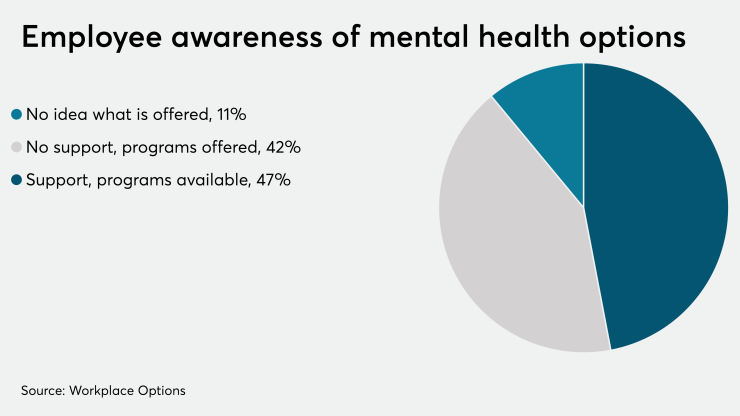Since the outbreak of the coronavirus pandemic, the dynamic between employers and their employees has shifted. As such, employers feel a responsibility to find new and innovative ways to help ensure the health and wellness of employees through their benefit offerings.
“The world as we all knew it changed in a very short amount of time this spring and continues to evolve as the pandemic remains an ongoing reality,” says Jonathan Finkelstein, CEO of Credly, a digital credentials management company. “Employees are under a lot of pressure, professionally and personally. At the same time, we’re experiencing a social justice movement that is shining a spotlight on the need for greater diversity and inclusion in the workplace.”
As a result of these changes, Finkelstien says it’s critical employers concentrate on developing their benefit offerings and communication strategies to best address the needs of their employee population now and in the future.
What benefits should employers be concentrating on to improve the quality of life of their employees during the pandemic?
Normalizing attention to mental health allows employers to create an environment where employees are not only healthier, but more productive, better engaged and happier at work. Consider offering your employees free counseling, access to mental health resources, or a more flexible work schedule. Don’t underestimate the impact of addressing life’s stress at this unique moment head-on, with humanity and empathy.
A significant number of employees think their company should be doing more to increase diversity among its workforce. Advance your diversity and inclusion initiatives by taking a skills-based approach to hiring, recruiting and promoting, and by launching new initiatives like D&I roundtables, inclusive employee networks, and diversity training.
Most employees want to work for a company where there are opportunities to learn and grow, ensuring their competitiveness in a fast-changing labor landscape, which is why learning and development benefits are more essential than ever. Offer employees use of company time to learn something new on their own, and provide employer-led training that culminates in a verified, shareable digital credential that provides full details of their new skills and competencies.
What benefits should employers focus on for the post-pandemic workplace?
Healthcare benefits are always one of the most sought after benefits but in light of the pandemic, where our health and safety have been the main priority, employees will expect a solid healthcare plan from their organization.
Employees need a chance to develop, grow and prepare for their future, which is why we see the push for digital credentials. When there is so much uncertainty about job security, employees can rely on digital badges to prove their skillset and make themselves more marketable in a competitive labor market. Digital credentials also highlight transferable skills — those skills that may have been honed in one industry or professional role, but transfer into another industry with rising demand for skilled individuals.
How has remote work changed how employers communicate with their employees about their benefits?
One of the most-discussed changes in the employer/employee dynamic is the impact of remote work on an organization. Many companies have long been skeptical about the logistics and productivity levels for a remote workforce. After being forced to very quickly adapt and figure out those logistics, reports indicate that employees are actually more productive working outside a traditional office setting.
This new way of working highlights other shifts in the employer/employee relationship, such as finding more effective ways of communication, replacing an emphasis on “looking busy” to “producing results,” and making sure that everyone still feels a sense of connection between day-to-day activities and a company’s mission.
Collectively, employers and employees are navigating uncharted territory together. That means people will make mistakes. Individuals expect their employers to display humility, acknowledge mistakes, and learn the right lessons. With compassion, candor and transparency, organizations and relationships with employees grow stronger.






